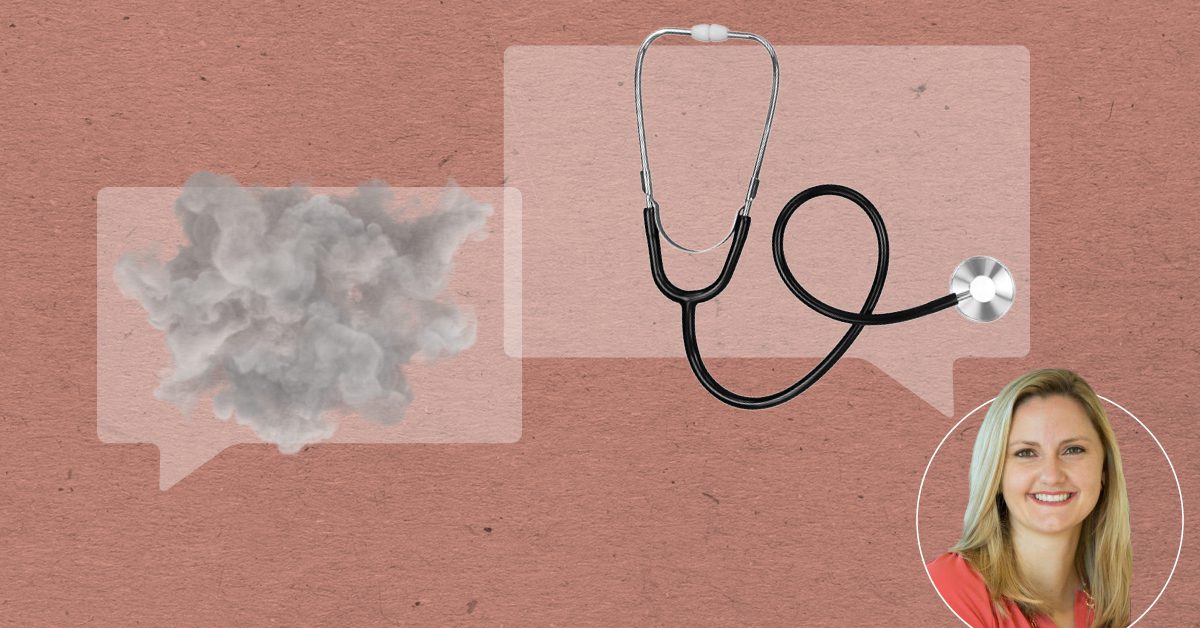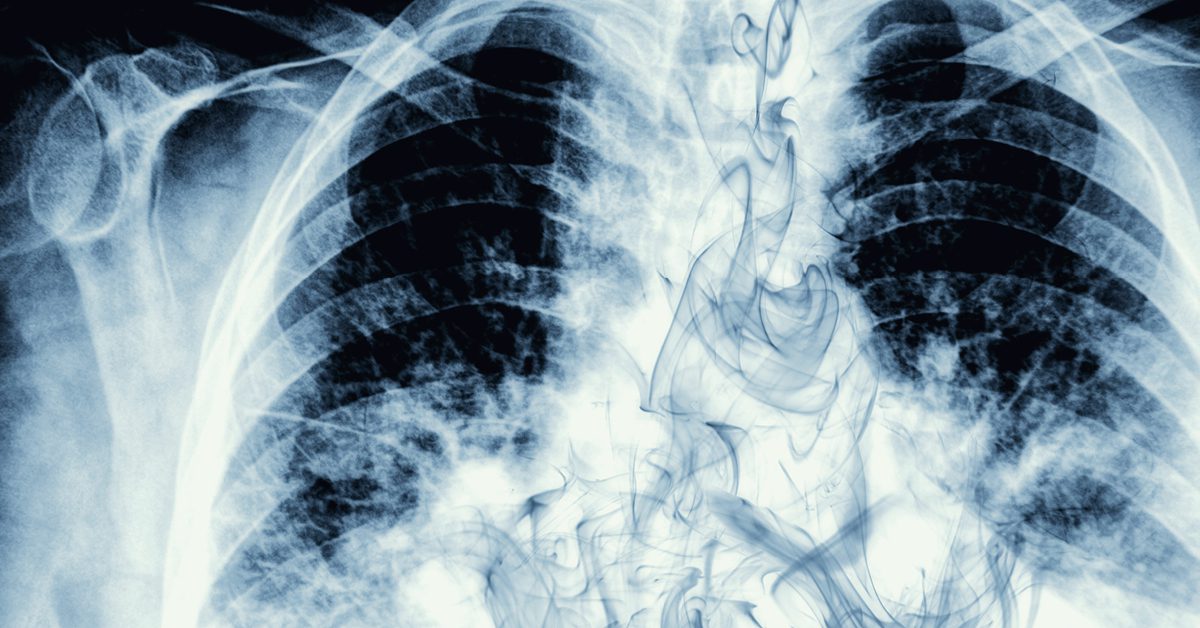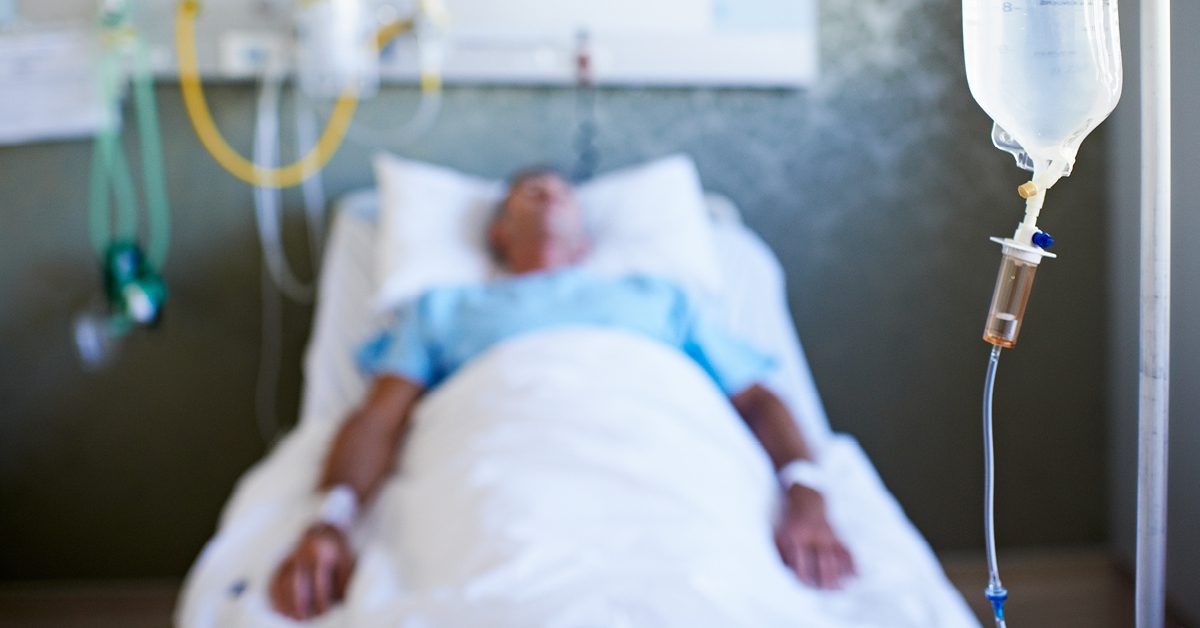A Conversation About Secondhand Smoke with Dr. Dean

Dr. Roselyn Dean is a family medicine doctor in Okemah, Oklahoma. She is certified through the American Board of Family Medicine and prides herself in providing comprehensive care to patients in all stages of life.
Recently, Tobacco Stops With Me had the opportunity to speak with Dr. Dean about the health problems and other dangers that stem from secondhand smoke. She answered our questions based on her research and experience, while also providing insight on the significant improvements that need to happen to make a difference.

Speaking from your own experiences, can you briefly touch on the ways smoking and secondhand smoke can negatively affect people’s health?
“Due to the numerous chemicals in cigarettes such as arsenic, acetone, tar and nicotine, cigarette smoke damages EVERY organ in the body. According to the Centers for Disease Control (CDC), there are over 7,000 chemicals in secondhand smoke alone — and more than 70 are known to cause cancer.”
What is something you’ve found your patients don’t realize about the effects of smoking and secondhand smoke on their lungs and body?
“Most of my patients know that smoking can cause lung cancer and chronic obstructive pulmonary disease (COPD). However, they are often unaware that smoking also causes other types of cancer and profoundly increases the risk of heart disease.”

Do you have any unique insights on these health effects and dangers, from a medical perspective?
“My medical insight is shared among all physicians with patients who use tobacco. We see patients who have just smoked their first cigarette, patients who have smoked for years without negative consequence and don’t want to quit, patients in the beginning stages of COPD and cancer because of smoking and patients in the end stages of the disease who are discussing life-changing procedures or even hospice. Due to this experience and perspective, we have a lot of discussions about what the future will likely entail for them if they do not quit smoking.”
Can you speak about the health effects that arise from even minimal amounts of smoking and secondhand smoke exposure?
“From even the first cigarette, chemicals will start to damage a person’s organs, especially their lungs. Fortunate patients who quit after a short term of smoking will notice a vast improvement in symptoms almost instantly. They will breathe easier, exercise with less fatigue and have fewer respiratory infections, which means they’ll also spend less time at the doctor.”

What are the short-term and long-term health effects and dangers from smoking and secondhand smoke exposure?
“The disadvantages from smoking develop quickly, including digestive changes, worsened allergies, headaches and increased blood pressure. Long-term use increases the risk of multiple cancers — not just lung cancer — along with heart attacks, strokes, COPD and respiratory and ear infections. Unfortunately, secondhand smoke exposure also increases these risks, as well as the risk of SIDS (sudden infant death syndrome).”
If somebody is not a current smoker, but is exposed to secondhand smoke, what can they do to keep themselves away from harm?
“If somebody is not a smoker and wants to minimize exposure to secondhand smoke, it is best to avoid situations where they will be around a person who is smoking, leave the room or ask the person to refrain from smoking around them.”
How have the Tobacco Settlement Endowment Trust (TSET) and the Health Care Workforce Training Commission (formerly Physicians Manpower Training Commission) helped you serve your community?
“TSET and HWTC have provided education and resources to help facilitate tobacco cessation for my patients. In rural areas, there are fewer opportunities to provide certain types of care that a family physician is trained to do, such as obstetrics. TSET and HWTC have helped offset the financial aspect of working in a rural, underserved region since some types of care I could otherwise provide are limited.”
The consequences of smoking and secondhand smoke exposure are fatal and far-reaching, but together, we can work to break the cycle of addiction and stop Big Tobacco in their tracks. Want to get involved? You can subscribe to our email newsletter, order free promotional materials and find even more ways to join the fight here.







